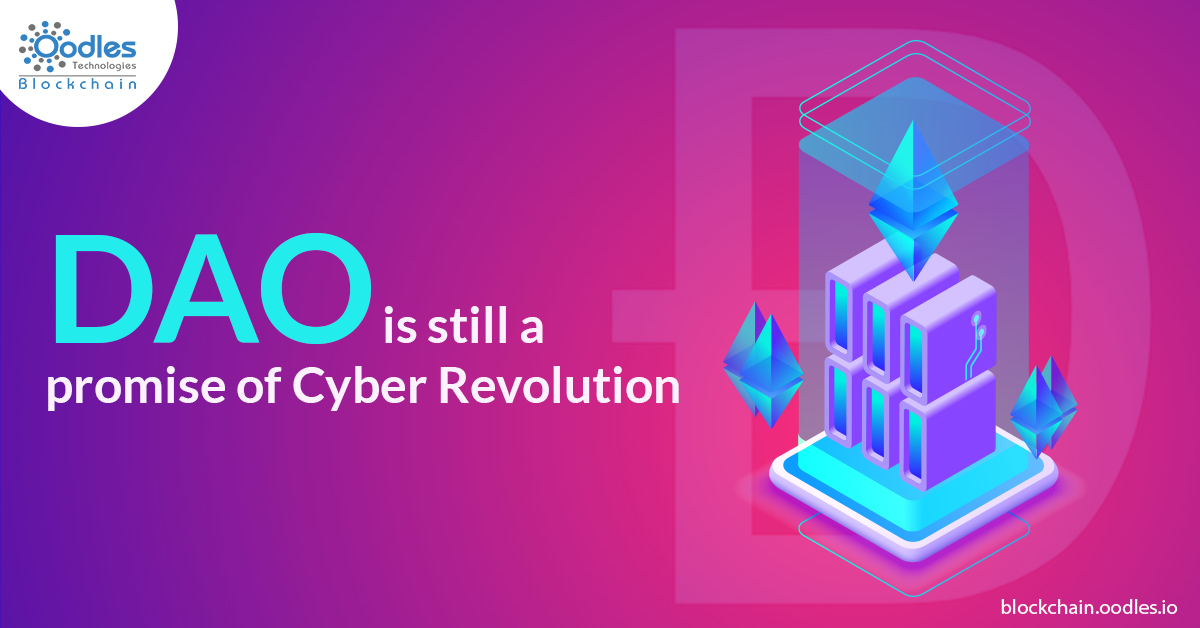-
The blockchain ecosystem has emerged as a powerful disruption in the technology landscape, distinct from other innovations due to its sweeping impact across industries. Just as the internet created entirely new business models and sectors, blockchain is now redefining how organizations and economies operate. Cryptocurrency opened a vast new dimension within this ecosystem, while decentralization has become a core driver of change. Ethereum smart contracts, in particular, introduced a new vertical by enabling programmable, trustless agreements. Building on these foundations, DAOs are becoming a natural evolution of decentralized governance, and working with a DAO development company can help businesses harness their full potential.
What is The DAO?
The DAO, Decentralized Autonomous Organization, was also such an eruption in the business and corporate ecosystem. It was primarily an effect of Blockchain's feature of Decentralization. It is no longer in existence, but the episode had a strong impact on the cyber ecosystem. The DAO was a form of Venture Capital Fund. It was investor directed and its objective was to provide a new business model, featuring Decentralization as the primary aspect. The DAO was based on Ethereum Smart Contracts blockchain.
What you should know about DAO
Although Ethereum is now working on a revamped structure of the DAO, it is technically not different from the previous one, which was released in May 2016, although the objectives and operation are not similar. Here are some interesting facts about The DAO of 2016.
- The DAO had no conventional management system or hierarchy. The Organization, although a multinational, had no directors or centralized management.
- The Code of DAO was open-source. Means, anyone can contribute to its development.
- The organization was not based in any state or country. However, it was global and it was not under the jurisdiction of any national administration.
- The DAO recorded the largest crowdfunding in history. Within 21 days, the organization had a funding of US$ 150 million from more than 11,000 investors across the globe.
- On June 17, 2016, in within 50 days of its launch, the DAO was attacked by a user gaining control over about one-third of its asset. About US$ 50 million was under the siege of the dubious user.
- The DAO was finally inoperational, but Ethereum is still a pertinent cryptocurrency. The loss of US$50 million impacted the Ethereum ecosystem permanently.
Although the pertinence of smart contracts as digital currency lost its glamour, the technology is now gaining relevance in other verticals as decentralized applications or DApps for specific purposes. The specialty in Ethereum Smart Contracts is, it is suitable to use in the creation of general decentralized applications that are not cryptocurrencies. They are active in the legal industry.
The aftermath of The DAO attack
US$50 million of the DAO attack was not lost. The fund was put into an account and was on hold for 28 days. The community hard-forked the Ethereum network and the funds of The DAO was moved to a recovery address. Owners of the currency could exchange back their funds as Ethereum. There was a division of opinion in the community and suggestions of re-appropriation, shutting down and also opposition to hard forking came up. The original blockchain of Ethereum is still on use as Ethereum Classic. After the attack, The DAO lost its credibility and it was delisted from trading and token exchanges. The US Securities Exchange also posed that DAO tokens led to possible violations of securities law. However, after investigation, it was found that the DAO was not a violation of the law. Ethereum Smart Contracts and DAO as a Democracy The basis of Decentralization is the mechanism on which the concept runs. This mechanism is Smart Contract. It is the translated version of a standard contract to cryptographically encoded codes. These contracts are meant to execute the tasks exactly as encoded. Ethereum is now posing the use of Smart Contracts as the building blocks of a “Democracy on the blockchain.” One can become a member of the DAO by deploying a Contract on the blockchain. Ethereum's idea is to transform Decentralization as a Democracy through Smart Contracts. In the new ecosystem, any member can propose a vote in support or against a proposal. This is done through an Ethereum transaction in the form of a contract. In a predetermined time when certain numbers of members have voted, the proposal is executed. After execution, the contract counts the votes. The transaction will execute only if there are enough votes in favor of it. In this ecosystem, Ethereum Virtual Machine (EVM) executes the Smart Contracts by transforming them to ‘bytecodes'. The DAO episode of 2016 exposed the critical nature of Blockchain, but the system claimed complete transparency and decentralization. It operated as a Hub to disburse funds to projects. The profits from the investments were given back to the investors or stakeholders of the currency. The DAO is still a promise of a revolution in the financial as well as business landscape. Ethereum Smart Contracts being the underlying principle of decentralization, it is becoming a mainstream technology.

Our Offices
INDIA
Emaar Digital Greens, Sector 61,
Gurugram, Haryana
122011.
Welldone Tech Park,
Sector 48, Sohna road,
Gurugram, Haryana
122018.














